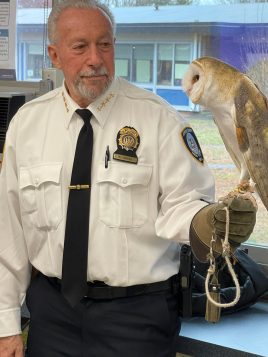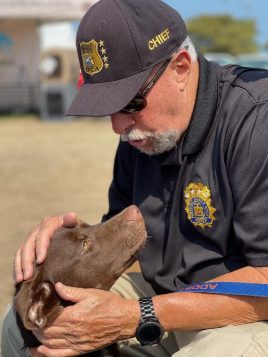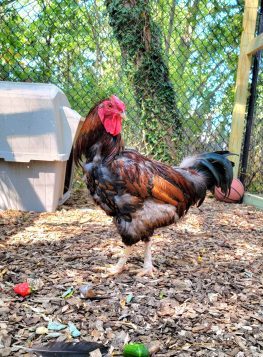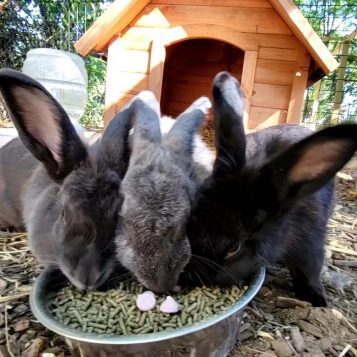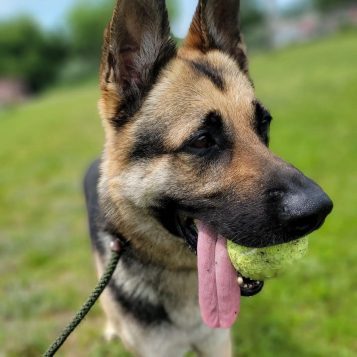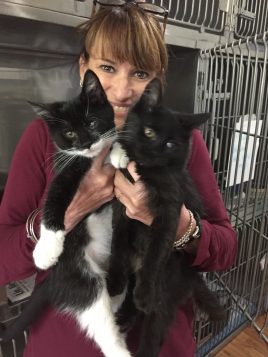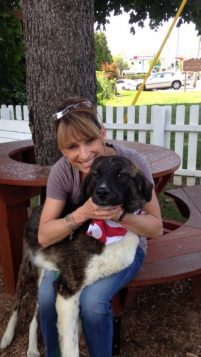Abandoned or worse, pandemic pets crowd shelters
The life of Linx is becoming an all too familiar tale in recent months.
A 3-year old German shepherd, Linx, who didn’t receive effective training from his owners, was abandoned a year ago, making it difficult for him to function as a normal dog. Although he’s not conventionally affectionate, Linx is eager to play and run, which means he is best suited for an outdoor and active life.
“He has low odds of finding the right situation,” said Leigh Wixson, animal shelter supervisor in the Town of Smithtown Animal Shelter & Adoption Center, where Linx currently resides.
Some residents throughout Suffolk County bit off more than they could chew during the worst months of the pandemic, adding animals ranging from dogs and cats to guinea pigs, rats, rabbits and roosters to their brood.
Unfortunately for many of those animals, their new owners didn’t always do sufficient research to understand what their new pets needed and didn’t take the time to train them.
At the same time, as people have returned to work outside the house or have become concerned about their budgets amid high inflation and the potential for a recession this year, some people have brought their pets to shelters, or worse.
In the last few weeks, people have left kittens in Tanner Park in Copiague and have abandoned a dog in a motel room for days.
“How do you do something like that to an animal that loved you?” asked Roy Gross, chief of the Suffolk County Prevention of Cruelty to Animals. “Never mind it being illegal, it’s immoral.”
Gross said his department has been pursuing cases where people have attempted to discard their pets in ways that jeopardize animal safety.
He urged people who may not be as comfortable or capable of continuing to provide care for their animals to bring them to one of the county’s 10 municipal shelters.
People who mistreat their pets, by neglecting or putting them in dangerous situations, face fines and jail sentences, Gross said.
Dori Scofield, president of Port Jefferson Station-based Save-A-Pet Animal Shelter, said someone recently tied a dog to a fence near the shelter.
“The dog could have hung himself on our fence, could have gotten away and gotten killed, lost or injured,” she said. Fortunately, she said, the dog made it through the night.
Not a good gift
People who work at shelters urged those who adopt animals, particularly pets like larger breeds of dogs, to take the time to work with them.
“Between 10 months and two years, people have to focus on training,” Scofield said. Without the proper support and direction, some dogs develop behavioral issues.
The first two years of owning a dog are the hardest. “It’s like having a teenager,” Wixson said. “You go through phases and then something clicks around two or three years old.”
Wixson added that every breed of dog has its quirks, which means that the adorable dalmatians from movies and other photogenic dogs don’t necessarily interact with their owners the way people might have expected.
“I have been attacked by more dachshunds and chihuahuas than any other breed,” Wixson said.
While people have surrendered or “donated” dogs, shelters have also had numerous calls about rabbits, roosters and other pets.
Scofield described rabbits as “awesome” pets, but cautioned that they are “high-maintenance” animals that require cleaning, feeding and attention.
The prospects for a domestic rabbit released into the wild are poor. A domesticated rabbit could get run over, starve or be attacked by predators, Gross said.
Wixson said she used to get one or two calls a week before the pandemic from people who couldn’t manage their pets. On Monday, she received five calls.
Some people have given pets to friends and family during birthdays and holidays, which works out as well, and sometimes worse, than when people receive gifts that are easier to return, like sweaters, ties, or toys.
“Giving an animal as a gift is not a good thing,” Gross said, “unless people are expecting it and this is what they want.”
As for the German shepherd Linx, Wixson said that, despite the odds, an adoption “can happen and we are always hopeful.” Wixson believes Linx would do “wonderfully well on a farm where people are outside and busy and there are many things going on around him.”

